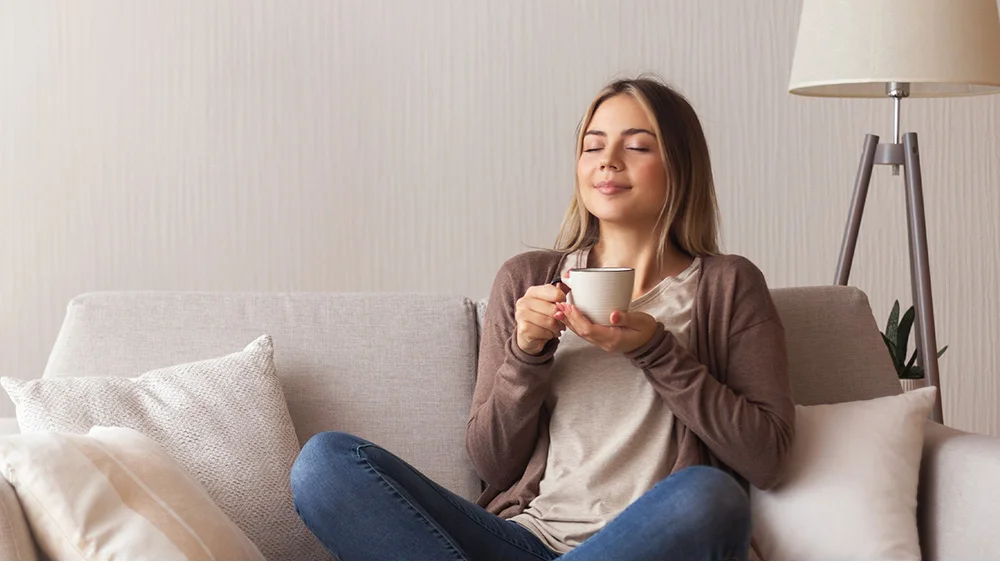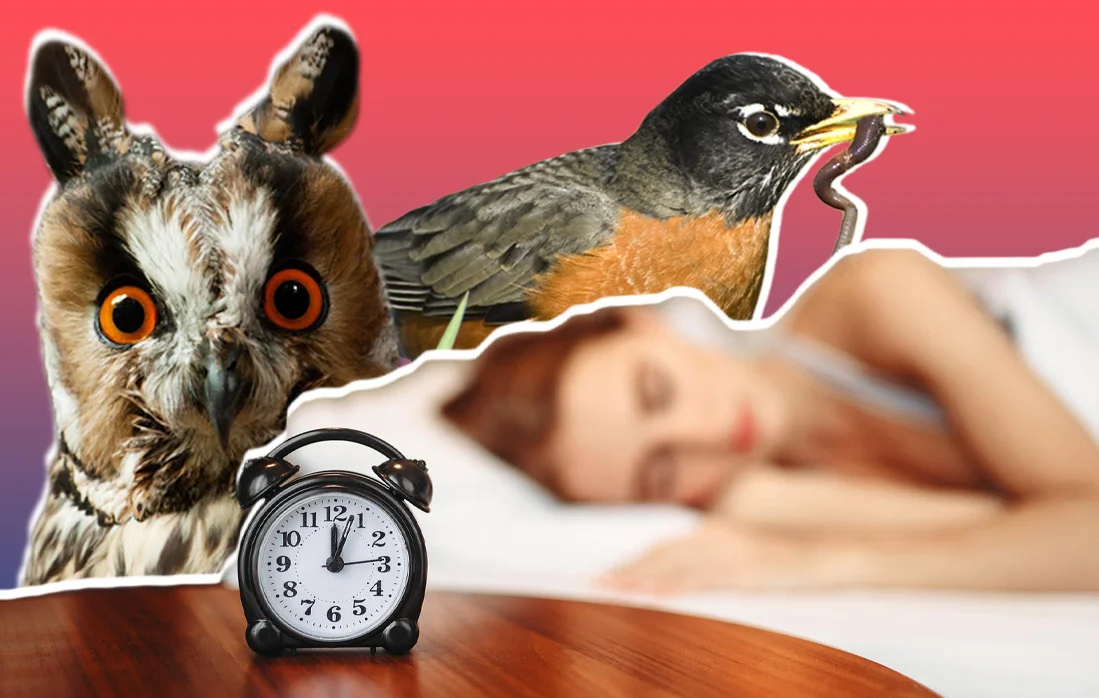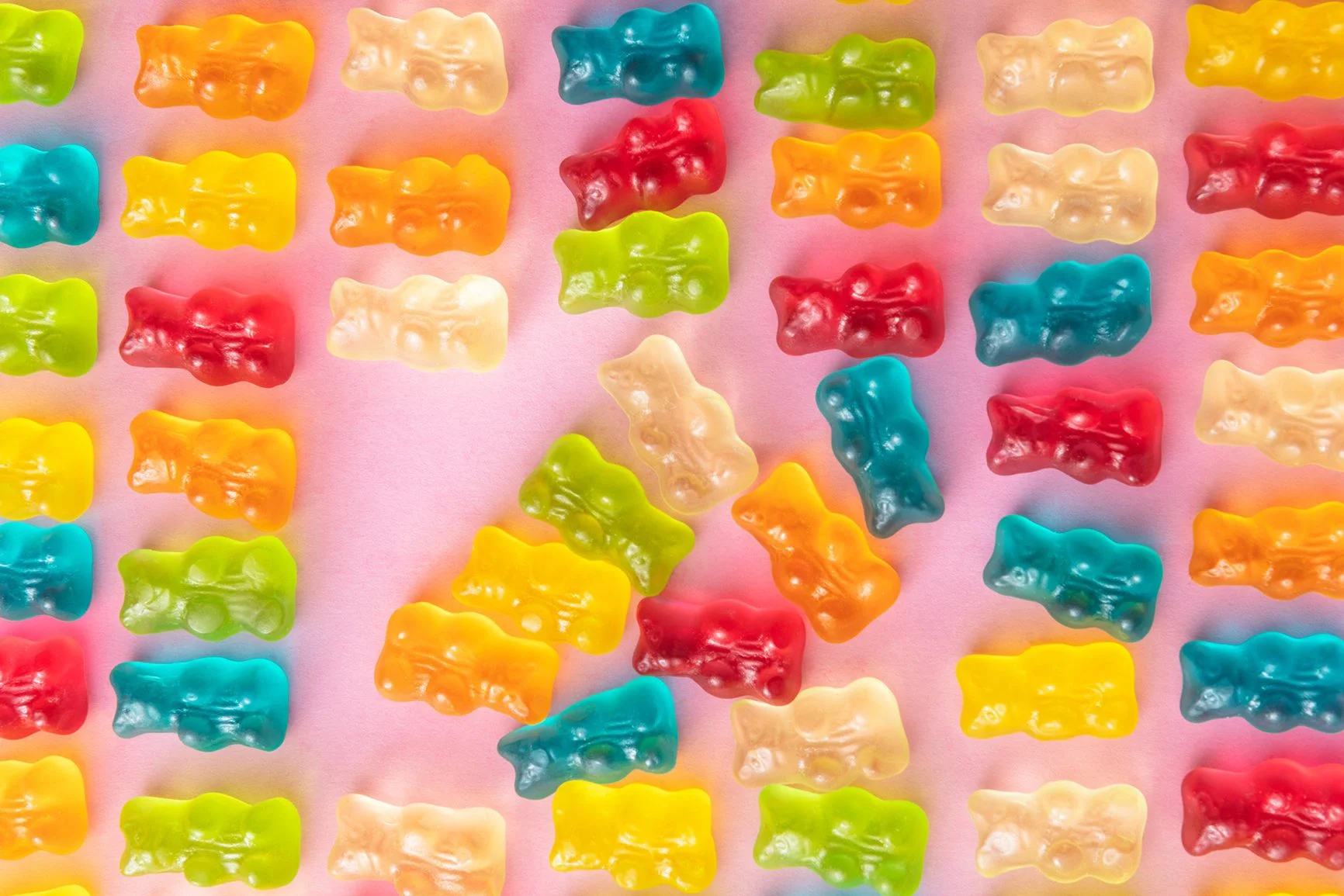
For most of us, the anticipation of that first cup of coffee is all the motivation we need to get out of bed in the morning. And while the smell of coffee wafting through the house, luring everyone to the kitchen, has been a long-standing trope, Neuroscientist and Stanford University professor Dr. Andrew Huberman said the best part of waking up may not be the coffee in your cup. (1) A new review of research, however, reveals that the science doesn’t quite hold up. (2)
Wait To Caffeinate
Dr. Chelsie Rohrscheib, head sleep expert and sleep scientist at Wesper, tells Sleepopolis, “The hypothesis is that waiting to consume caffeine allows your brain to naturally reduce the concentration of the sleep molecule adenosine instead of using caffeine to compete with adenosine, ultimately reducing the likelihood of a post-caffeine crash.”
And according to Huberman, “When we wake up in the morning, adenosine levels are at an all-time low, but they are not zero… [and] ingesting caffeine right after waking prevents clearance of the remaining adenosine. As a consequence, people feel a lift and energy but then often feel very sleepy in the afternoon.” (1)
To avoid that afternoon crash, Huberman suggests waiting 90 to 120 minutes after waking before reaching for your favorite brew. (1) Theoretically, doing so allows adenosine levels to rise slightly, ultimately making caffeine more effective at blocking those receptors and keeping us alert.
Here’s the Rub
The problem here is that the theory of delaying caffeine intake has never actually been researched. However, a team of doctors and researchers got together to conduct an “evidence-based scientific evaluation of the literature regarding caffeine supplementation,” one of which was “wait to caffeinate.” (2)
Ultimately, the researchers found no evidence to support the claim that delaying your morning coffee can do anything but annoy you (and maybe everyone else around you). More specifically, based on the “circadian patterns of cortisol secretion” and “adenosine accumulation and clearance,” the researchers proffer that “a fundamental basis for suggesting that delaying caffeine intake in the early waking hours would prevent an afternoon “crash” is completely lacking.” (2)
Beyond debunking the idea of “wait to caffeinate,” the researchers also found that (subjectively) caffeine is most effective for promoting wakefulness after periods of sleep restriction (aka insufficient sleep) and can displace adenosine by as much as 50% in higher doses (think 4–5 cups of coffee). (2) In this case, immediate caffeine intake upon waking is likely beneficial.
We’ll add here that the review also showed habitual caffeine drinkers are less likely to experience elevated cortisol levels, further making the point moot. (2)
How Did We Get Here?
Andrew Huberman outlined the idea of “wait to caffeinate” in a quick post on Twitter (now X) in 2022. From there, the internet did what the internet does — the idea of “wait to caffeinate” took on a life of its own. What’s even more interesting is that a cursory web search turns up story after story of people who swear by delaying their morning Joe.
So what gives?
“Unfortunately, certain medical claims tend to take off like wildfire when made by someone with a large following,” says Rohrscheib. “Additionally, there is a certain amount of confirmation bias, in which they may see improvements by following the latest and greatest.”
To the same point, Dr. Jose Antonio, the review’s lead researcher, tells us it’s not even as science-y and complicated as a placebo effect — it’s simply because “folks will believe anything if it fits their preconceived notions.”
Don’t Wait to Caffeinate, But Proceed With Caution
While die-hard fans might revel in the green lights to fire up their coffee makers and partake in their favorite go juice as soon as they wake, Lauri Leadly, CCSH, RPSGT, clinical sleep educator, founder & president at Valley Sleep Center, encourages coffee drinkers to exercise some caution. Leadly notes that caffeine can increase alertness, but it still comes with a host of deleterious effects, not the least of which is sleep disruptions.
“Even in moderation,” Leadly says, caffeine consumption has been linked to: (3) (4)
- Insomnia
- Headaches, dizziness, or nervousness
- Impaired memory and learning
- Anxiety and irritability
Beyond the host of adverse physiological effects, Leadly reminds coffee drinkers that “it can take up to 6 hours for half of the ingested caffeine to be metabolized and leave your system.” She adds that while your morning coffee may be fine, it’s probably best to mind your sleep hygiene and skip caffeinated beverages in the late afternoon and evening, as they can “prolong wakefulness and alertness far beyond bedtime.”
Other Findings Regarding Caffeine
For those who are interested, the study also debunked and corroborated the following: (2)
- Moderate caffeine consumption may have mood-enhancing effects for some and provide temporary relief from some depressive symptoms for others.
- Caffeine can exacerbate anxiety and cause sleep disruptions.
- Caffeine can be overdosed, though this is highly unlikely in healthy individuals. A lethal dose is one in excess of 5000 mg or 5 grams. And in case you were wondering, the amount of caffeine in an average cup of coffee is somewhere between 96mg and 200mg.
- No, caffeine won’t help you lose those last five pounds.
45 Beverages Ranked by Caffeine Per Ounce

Can Sticking Your Head in the Freezer Really Help You Feel More Alert? I Tried It to Find Out

Can You Become a Morning or Night Person? Experts Weigh In.

Everything You Need To Know About Caffeine Gummies
Sources
1. Huberman, Andrew, Ph. D. @hubermanlab. Instagram. Retrieved April 26, 2024 from https://www.instagram.com/hubermanlab/p/Cl2DawHv9Fk/
2. Antonio, J., Newmire, D. E., Stout, J. R., Antonio, B., Gibbons, M., Lowery, L. M., … Arent, S. M. (2024). Common questions and misconceptions about caffeine supplementation: what does the scientific evidence really show? Journal of the International Society of Sports Nutrition, 21(1). https://doi.org/10.1080/15502783.2024.2323919
3. Chaudhary NS, Grandner MA, Jackson NJ, Chakravorty S. Caffeine consumption, insomnia, and sleep duration: Results from a nationally representative sample. Nutrition. 2016;32(11-12):1193-1199. doi:10.1016/j.nut.2016.04.005
4. Antonio, Jose. Author interview. April 29, 2024.
5. Leadly, Laurie. Author interview. April 29, 2024.
6. Rohrscheib, Chelsie. Author interview. April 30, 2024.

























